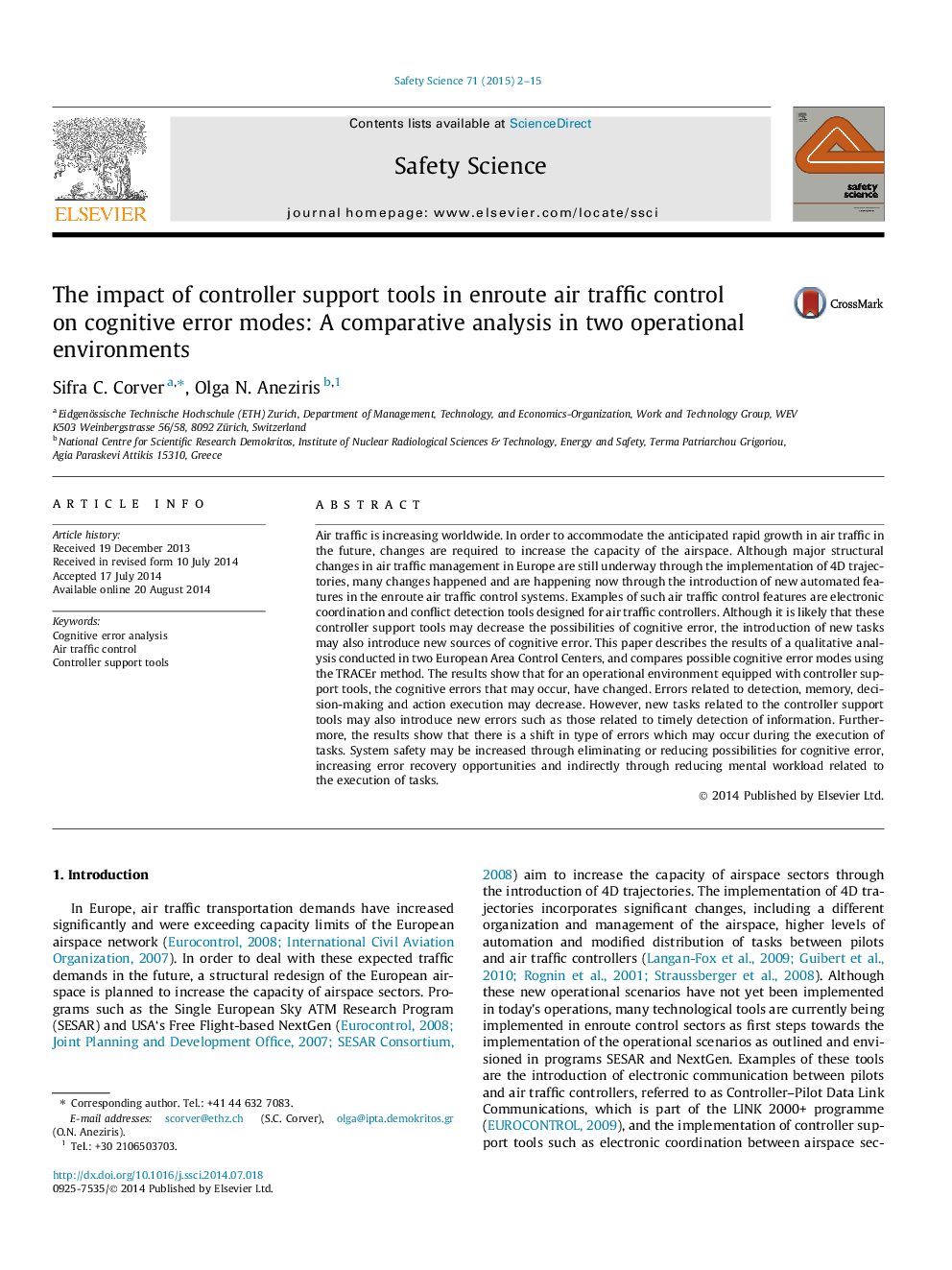| کد مقاله | کد نشریه | سال انتشار | مقاله انگلیسی | نسخه تمام متن |
|---|---|---|---|---|
| 589025 | 878677 | 2015 | 14 صفحه PDF | دانلود رایگان |
عنوان انگلیسی مقاله ISI
The impact of controller support tools in enroute air traffic control on cognitive error modes: A comparative analysis in two operational environments
ترجمه فارسی عنوان
تأثیر ابزارهای پشتیبانی کننده کنترل در کنترل ترافیک هوایی بر روی حالت خطای شناختی: یک تحلیل مقایسه ای در دو محیط عملیاتی
دانلود مقاله + سفارش ترجمه
دانلود مقاله ISI انگلیسی
رایگان برای ایرانیان
کلمات کلیدی
تجزیه و تحلیل خطا شناختی، کنترل ترافیک هوایی، ابزار پشتیبانی کنترل کننده،
موضوعات مرتبط
مهندسی و علوم پایه
مهندسی شیمی
بهداشت و امنیت شیمی
چکیده انگلیسی
Air traffic is increasing worldwide. In order to accommodate the anticipated rapid growth in air traffic in the future, changes are required to increase the capacity of the airspace. Although major structural changes in air traffic management in Europe are still underway through the implementation of 4D trajectories, many changes happened and are happening now through the introduction of new automated features in the enroute air traffic control systems. Examples of such air traffic control features are electronic coordination and conflict detection tools designed for air traffic controllers. Although it is likely that these controller support tools may decrease the possibilities of cognitive error, the introduction of new tasks may also introduce new sources of cognitive error. This paper describes the results of a qualitative analysis conducted in two European Area Control Centers, and compares possible cognitive error modes using the TRACEr method. The results show that for an operational environment equipped with controller support tools, the cognitive errors that may occur, have changed. Errors related to detection, memory, decision-making and action execution may decrease. However, new tasks related to the controller support tools may also introduce new errors such as those related to timely detection of information. Furthermore, the results show that there is a shift in type of errors which may occur during the execution of tasks. System safety may be increased through eliminating or reducing possibilities for cognitive error, increasing error recovery opportunities and indirectly through reducing mental workload related to the execution of tasks.
ناشر
Database: Elsevier - ScienceDirect (ساینس دایرکت)
Journal: Safety Science - Volume 71, Part A, January 2015, Pages 2-15
Journal: Safety Science - Volume 71, Part A, January 2015, Pages 2-15
نویسندگان
Sifra C. Corver, Olga N. Aneziris,
